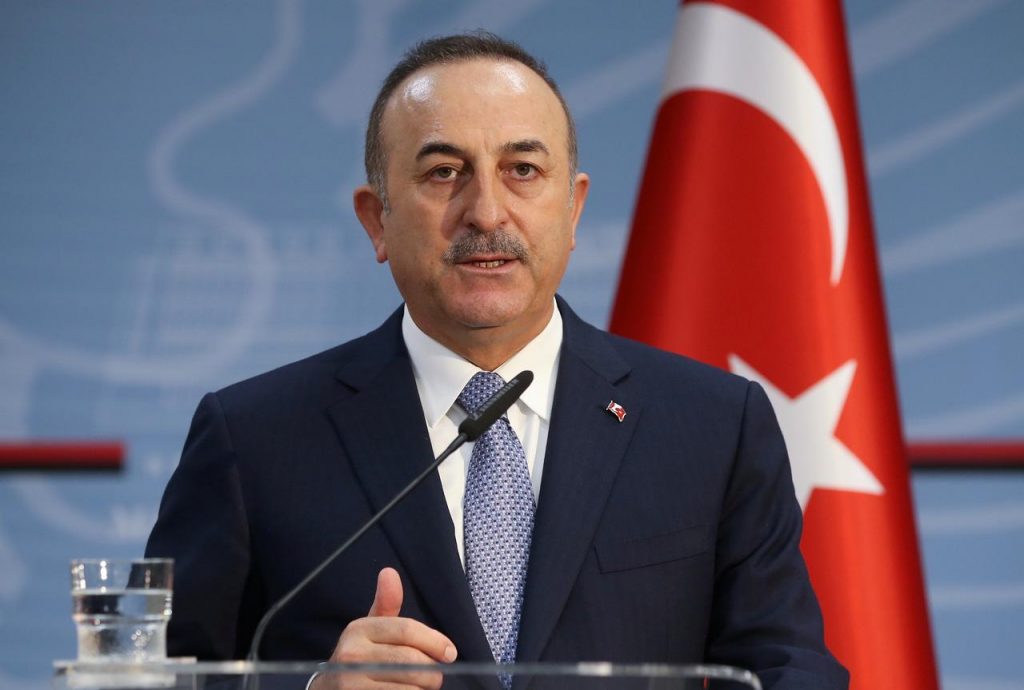
- ARAB NEWS
- 01 Jul 2025

The Turkish political agenda is currently dominated by the reforms that will shortly be announced by the government with the aim of improving the country’s investment climate. As usual, the polarized Turkish society is divided between those who are hopeful of these reforms passing and those who do not buy into the proposal.
Although the government has not made it clear exactly what these reforms will be, it has asserted that the economy, the judiciary and foreign policy will be the areas that will be influenced by them.
Regarding the scope of the foreign policy reforms, there has not been much clarification, except on relations with the EU. Turkey’s presidential spokesperson Ibrahim Kalin last week assured that the new reforms would have a positive impact on foreign policy. “It will make our workflow faster both at home and abroad. This will have many positive effects on economy, politics, society, and foreign policy,” Kalin told news channel NTV on Saturday. He also referred to President Recep Tayyip Erdogan’s announcement on Nov. 13 of a period of reforms, saying that the new steps would raise the standards for democratic rights and the freedom of the people.
There have been calls for Turkey to revise its foreign policy, in particular with regards to the US and the EU, in order to avoid the risks that could be posed to its economy. Therefore, it was not surprising to see the Turkish leader saying that Ankara seeks stronger cooperation with allies such as Washington and is actively trying to resolve the regional and global issues. But he said Turkey also cannot ignore countries like Russia and Iran, with whom it has deep-rooted ties. “We seek to improve our cooperation with almost all regional pacts in the world,” Erdogan said, adding that Turkey works toward solutions based on territorial integrity and political unity everywhere it is involved, from Syria to Libya.
However, the strongest lines came when Erdogan mentioned Turkey’s relations with the EU. “Turkey’s future lies in Europe and not anywhere else,” he said. “We expect the EU to keep its promises, not to discriminate, or at least not to be an instrument to the overt hostilities toward our country. We see ourselves in Europe, not anywhere else, and we look to build our future with Europe.” Kalin subsequently went to Brussels to test the waters there. Needless to say, the scope and framework of the Turkey-EU relationship in the new era was his main agenda topic.
The timing of the announcement was significant, as EU members are currently seriously considering imposing sanctions on Turkey ahead of their meeting on Dec. 10. It is not clear whether Erdogan’s statement on the EU was meant to recalibrate Ankara’s entire foreign policy orientation toward Europe or just to “agree to disagree” on some issues for now while he fixes matters at home. If we take the former assumption, then the eastern Mediterranean issue and problematic relations with France and Greece will be the first areas for a reliable Turkish-EU discussion on a potential new era. It seems Turkey won’t take a step back on these topics if the EU fails to fulfill its promises toward Ankara regarding the customs union, visa liberalization, and renewing the deal on Syrian refugees.
There is mutual skepticism in both Ankara and Brussels. The latter is particularly skeptical about the former’s sincerity in reforming and starting a new foreign policy era. The coming days will, therefore, be highly significant for Turkey if it is to show that its new era of reform is more than mere words. If Ankara is able to recalibrate its foreign policy, the ball will be in the EU’s court and it will need to fulfill its obligations.
Ankara seeks stronger cooperation with allies such as Washington and is actively trying to resolve the regional and global issues.
Sinem Cengiz
While hopes were high of a new Turkish-EU era, a German frigate, led by a Greek commander, this week reportedly unlawfully stopped and searched a Turkish-flagged vessel in the Mediterranean without receiving permission from the Turkish authorities. Foreign Minister Mevlut Cavusoglu said in a statement late Tuesday that Turkey will take the necessary steps in every field against the EU’s Operation Irini over the illegal search. Turkey’s National Security Council met on Wednesday to discuss what its response would be.
This incident was the last thing needed at this time. But, at the same time, it once again proved that, without negotiations between Turkey and Greece, no progress will be possible in Turkish-EU ties. Eventually, the new reform era will be taken hostage by the Turkish-Greek tensions. In addition to the bilateral dimension of Turkey’s relations with the EU, the incoming American administration and its expected policies should be another reason for Turkey and some EU member states to find common ground.